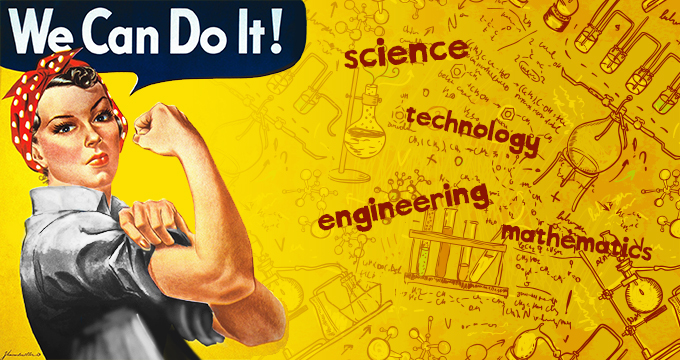advertisement
#WomenInScience: UNESCO marks the International day of Women and Girls in science in Kenya
Science and gender equality are both vital for the achievement of the internationally agreed development goals, including the 2030 Agenda…

Science and gender equality are both vital for the achievement of the internationally agreed development goals, including the 2030 Agenda for Sustainable Development.
Over the past 15 years, the global community has made a lot of effort in inspiring and engaging women and girls in science.
Unfortunately, according to United Nations Educational, Scientific and Cultural Organization (UNESCO), women and girls continued to be excluded from participating fully in science.
advertisement
According to a study conducted in 14 countries by UNESCO, the probability for female students of graduating with a Bachelor’s degree, Master’s degree and Doctor’s degree in science-related field are 18%, 8% and 2% respectively, while the percentages of male students are 37%, 18% and 6%.
It is in regards to the this, UNESCO Regional Office for Eastern Africa, in partnership with the Forum for African Women Educationalists (FAWE- Africa), Microsoft Kenya, African Women in Science and Engineering (AWSE), the Ministry of Education together with other key stakeholders and partners in gender equality and women’s empowerment in Science Technology, Engineering and Mathematics (STEM), have come together to celebrate the International day of Women and Girls in science 2018.
Held at UN Complex in Gigiri the theme for this year’s celebrations was “Gender Equality and Parity in Science for Peace and Development” with the focus being to encourage girls and young women to not only choose science but also enjoy science.
advertisement
Speaking at the event, Ms. Ann Therese Ndong-Jatta, UNESCO Regional Director said that women and girls play a critical role in science and technology communities and that their participation should be strengthened to have more girls by equally having Governments play a key role.
“Gone are the days when we said we needed more girls to take up STEM Carriers. It is now time that Governments step-up investment around supporting initiatives that drive women in sciences. The percentage of women in sciences is too low. It is evident that Africa is not making effective use of its human resource. If you leave out 50% of your workforce then you cannot compete with other nations where everyone else is mobilized and is capacitated to do well and better,” she added.
On her end, Ms Sahle-Work Zewde, Director General UNON “The overall objective of the celebration of the International Day for Women and Girls in Science is to give visibility to the women scientists who have made a difference in STEM fields and to encourage young and upcoming female scientists as well as girls in secondary schools to look beyond the gender stereotypes and embrace STEM careers.”
advertisement
She added that this forum is important to show that both women and girls can make a difference given an opportunity especially in sciences which are specific and quite cross-cutting.
Ms. Sahle, also emphasized on the need of mentorship adding that she had put up a network of women leaders to mentor others at United Nations.
“To achieve the Gender Parity in STEM Careers, we need to look back as women and uplift others who are behind us so that they can take our place in future. We can only do this through mentorship,” added Ms. Sahle.
Celebrated on 11th February, the International Day of Women and Girls in Science is an event that is inspiring women and girls to see the tremendous opportunities that exist in all the STEM fields.
This year’s commemoration examined the need for policy changes at all levels to address the gender imbalance that exists in scientific fields, as well as in other key areas including engineering, mathematics and cutting-edge innovative technology.
The International Day of Women and Girls in Science was adopted by the United Nations General Assembly to promote full and equal access to and participation in science for women and girls.
Now in its 3rd year, the celebration is led by UNESCO and UN-Women, in collaboration with institutions and civil society partners that promote women and girls’ access to and participation in science.
The event was attended by women across all industry sectors pursuing STEM Careers as well as high school students from various school within Nairobi County.